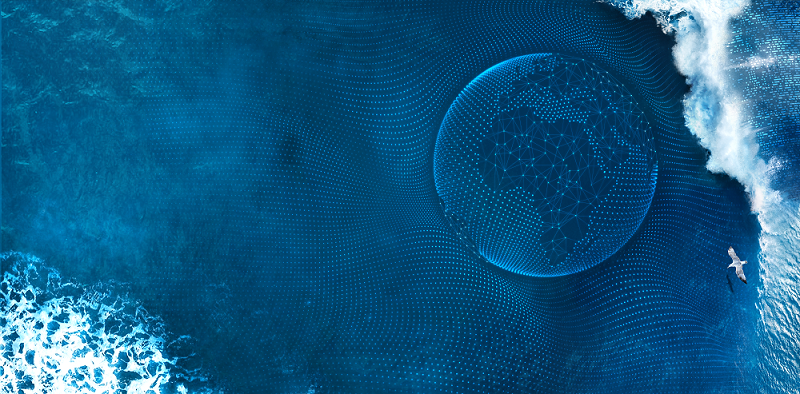In conjunction with its 60th anniversary in 2020, the Intergovernmental Oceanographic Commission (IOC) of UNESCO launched the Global Ocean Science Report 2020 (GOSR2020). IOC-UNESCO’s flagship report provides a thorough assessment of the status and trends in ocean science capacity around the world. Karina von Schuckmann, an oceanographer for Mercator Ocean international, has contributed to two chapters of the GOSR2020.
Where are we in developing and sharing ocean knowledge?
The GOSR2020 provides a global overview describing the ocean science capacity status worldwide. In fact, as it is stated in the report, 45 countries representing 82% of ocean science publications over the period 2010–2018, contributed data and information directly to the second edition of the GOSR (GOSR2020). Compared to the first edition (GOSR2017), the GOSR2020 provides ocean stakeholders with more and improved data. It addresses four additional topics (Contribution of ocean science to sustainable development, Science applications reflected in patents, Extended gender analysis in ocean science human resources, and Capacity development in ocean science) and, thanks to a dedicated portal, it is a “living product”, constantly updated. Through an online facility, the global community is able to submit, update and consult data.
As we enter the UN Decade of Ocean Science for Sustainable Development (2021-2030), it is extremely important to regularly assess progress on the efficiency and impact of policies and ocean science capacity. The GOSR2020 is an extremely relevant source of information, as the data provided allows us to measure progress towards the achievement of the UN Sustainable Development Goals (SDGs), notably to SDG target 14.a: “Increase scientific knowledge, develop research capacity and transfer marine technology […] in order to improve ocean health and to enhance the contribution of marine biodiversity to the development of developing countries, in particular small island developing States and least developed countries”.
Top findings
Despite their relevance to society, the findings of ocean science have a potential that remains underused. In addition, funding for ocean science results inadequate. For what concerns human resources in this field, women continue to be under-represented, while the recognition of young ocean scientists, and the level of support offered to them, differs widely among countries. Beside the workforce, the technical capacity of ocean science remains unequally distributed among countries and regions.
Chapter 6 and chapter 7
Our oceanographer Karina von Schuckmann has contributed to two chapters of the Global Ocean Science Report 2020, namely chapter 6 “Ocean science for sustainable development” and chapter 7 “Data and information for a sustainably used ocean”. Von Schuckmann is an expert in physical oceanography specialised in climate monitoring. At Mercator Ocean International she coordinates in situ and satellite data reprocessing activities and Copernicus Marine Service reanalyses; she chairs the Copernicus Marine Service Ocean State Report and the Ocean Monitoring Indicator (OMI) activities. She is also a lead author of the first chapter of the Intergovernmental Panel on Climate Change (IPCC) Special Report on the Ocean and Cryosphere in a Changing Climate (IPCC SROCC), she is a lead author in chapter 2 of the IPCC AR6. Von Schuckmann contributed to the ocean heat content section of the World Meteorological Organization (WMO) Statement of Global Climate in 2019.

